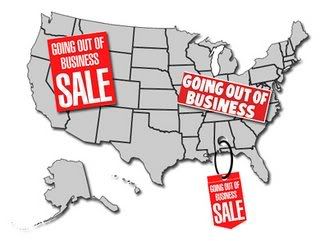
All around it feels like a funeral, but attempts to identify the deceased have only generated confusion and controversy. No one knows for sure what passed away during the worst economic crisis since 1929. The following list includes only the likely casualties.
Neoconservative Republicans: The small mafia-like group, dogmatic and cynical, which controlled and defined the Bush administration is, like the president, passing into history. Its death certificate already registers it as one of the worst administrations in United States history. Those who accompanied it are also leaving through the back door. Yet both the ideology and interests that acquired such extravagant prominence with this group are still there and under certain circumstances could be resurrected.
Market fundamentalism: George Soros named thusly a series of attitudes and policies that have, over the last decade, dominated the United States’ economic outlook and contaminated the entire world. An economic philosophy centered on financial speculation and an unprecedented concentration of wealth was proclaimed fueled by ignorance, irresponsibility, and abuse of trust. The false debate between government and the free market, attempting to claim the supreme worth of the invisible hand, has concluded. Once again the governments hand in the creation of markets and their necessary regulation will be recognized. Even McCain, who has defended deregulation throughout his entire political career, has realized the need to adopt a populist stance, denouncing Wall Street corruption and demanding greater government supervision of the market. This corpse is not likely to rise again.
Neoliberalism: The label was carelessly affixed to many different philosophies, but only truly applies to the package of policies associated with the so-called Washington Consensus. They were neither new nor truly liberal policies, but extended from the United States and Latin America to the entire world. The Consensus fell apart well before this crisis. It was up to the World Bank, one of its principal advocates, to eulogize in its most recent report. The governments of Colombia and Mexico are perhaps the only left in the world who shamefully continue to follow it. The abandonment of this philosophy, now gasping its final breaths, cannot be contributed to the crisis, but some of its components, such as fiscal and monetary prudence, will gain favor because of it. Its predictable application in the United States has already provoked surprise and worry. When the International Monetary Fund and the European Union prescribed advice to the U.S., administered to all countries for decades, some legislators considered it an attack on U.S. sovereignty.
The United States position in the world: This is the most difficult casualty to certify, and requires examination of each of its components.
a) Clearly Wall Street has ceased to be the center of the financial world. It will not be replaced by another: the plurality of financial centers will be a sign of new multilateral geopolitics.
b) The imperial capacity of the United States, which was never based on arms, although it did frequently employ them, has been seriously in question for years. The recent evolution of Latin America stands witness to the process. The crisis is a symbol of its passage into history. No empire can sustain itself upon loans.
c) The proposed reform to the international financial system will soon create mechanisms in which the dollar will not have the position still attributed to it.
d) If the new U.S. administration abandons the impossible attempt to sustain an imperial army that now lacks economic and political support, something uncertain with McCain/Palin, the United States could slowly recover from the crisis and occupy the place on the world stage that belongs to it.
The current crisis does not mean, in and of itself, the end of the long agony of the capitalist regime, which we have been under for decades. Yet the indefinite delay of its collapse seems impossible. The current juncture is defined by a complex network of economic, social, ecological, and financial disasters created by the arrogance that characterized the victors of the Cold War and contaminated leaders around the world. The spirit of transformation runs deep and wide, everywhere nurturing hope. Yet the sheer magnitude of the changes that must be wrought, along with the strong influence of those interests and ideological fundamentalists who oppose them, means that it will be nearly impossible to attempt them. That is why we should prepare for even more severe disturbances than those marking the current instability, including the possibility of violence, bearing with it both the possibilities and immense dangers usually associated with the end of an era.

Leave a Reply
You must be logged in to post a comment.